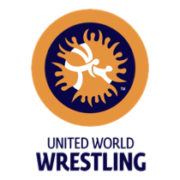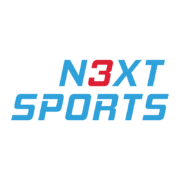When deciding how to deliver digital transformation inside an organization, it is hard to ignore the value mobile apps offer to sports properties. Albeit a challenging enterprise, launching a dedicated app goes a long way to augmenting an entity’s direct-to-consumer (D2C) capabilities, while many of the platforms rolled out by sports rights holders are designed to diversify their revenue streams.
As per research by Statista, cited in N3XT Sports’ 2022 Digital Trends in the Sports Industry report, mobile apps are estimated to bring close to US$4 billion in revenue to the sports industry this year. This covers a mix of advertising income (US$2.47 billion), in-app purchases (US$1.29 billion), and paid-app purchases (US$188 million), highlighting the commercial opportunity awaiting sports properties leveraging mobile apps in order to personalize the fan experience.
“Fan engagement is a fundamental factor when deciding on your digital transformation journey,” explains Hisham Shehabi, N3XT Sports Chief Operating Officer (COO). “This is something organizations are considering at every level of the sporting pyramid. Our partnership with United World Wrestling (UWW), for example, involved the implementation of the federation’s first dedicated mobile app, among other solutions, and brought a new dimension to the first digitally focused UWW World Championships held in Belgrade in September.”
In a similar fashion, as the digital transformation of the industry continues to evolve, there are many more sports properties beginning to integrate scalable mobile platforms into their digital inventories. For example, the National Basketball Association’s (NBA) new-look mobile app, launched in September, seeks to build “stronger, direct relationships” with fans by leveraging Microsoft’s artificial intelligence (AI) and cloud-software solutions designed to personalize the user experience.
According to the NBA announcement, the mobile app includes NBA ID, the league’s new, free-to-join, global membership program, which offers fans benefits and rewards from the NBA league, teams, and partners. NBA ID will also connect fans with new experiences across the league’s existing digital products, including the integration of the Turner-powered NBA League Pass streaming service and the NBA Pick ’Em online prediction game into the NBA app.
“While the NBA has set the benchmark for technology adoption over the years, this level of digital diversity can be replicated and enables rights holders to bring to market products that serve the fan in new ways,” Shehabi continues. “In doing so, we are seeing rights holders introduce mobile apps dedicated to other verticals away from sporting activities, including within health and fitness, gamification, and new business-focused apps leveraged to connect stakeholders with fans.”
1. CD LEGANÉS BUSINESS CLUB APP OFFERS SPONSORSHIP ROUTE
In Spanish football’s LaLiga SmartBank second tier, Club Deportivo Leganés (CD Leganés) announced in May the transformation of its exclusive Business Club into a digital community centered around a new and exclusive mobile app. The platform, built in collaboration with Dutch software company Bundeling and with support from LaLiga’s €1.994 billion investment deal with the private equity firm CVC Capital Partners, was designed to allow Business Club members to connect with one another and sign up to mutual business activities.
Speaking to N3XT Sports, Victor Marín, the club’s Director of Marketing and Sponsorship, outlined the importance of generating an ecosystem of companies that not only have a relationship with the club but also get to know each other so that they can “share information and synergies”. Adding: “With the Bundeling application, we’ve managed to create this unique and private space in which business managers from different companies and organizations can communicate both with the club and with each other.”
By connecting companies in this way, Marín says that the club’s sponsorship department is able to offer them opportunities to engage directly with the CD Leganés digital fanbase via personalized email campaigns adapted to the fan’s unique behaviors and marketing preferences. Of the 56 companies linked to the Business Club, 44 have signed up to the mobile app in the space of four months. As of 27th September, a total 76 users had accessed the app a combined 4,642 times – most of which occurred throughout the LaLiga season, although Marín says the app still receives a significant number of engagements during the summer break.
“As in all sectors, we have detected that the greatest consumption of our channels is done through mobile phones,” Marín continues. “For this reason, as well as having our website and our online shop in responsive format, we also have our own club app and, since a few months ago, this specific app for the corporate club. Nowadays the mobile device is just another part of our body; we are connected to it and therefore we have to be part of this connection with our fans as well as with our companies.”
2. SPORTS ENTITIES AUGMENTING THEIR MOBILE OFFERING
While the live sports experience is vital for generating fan engagement, there are several cases where the rights holder is able to expand its audience reach via mobile apps that don’t have much to do with their core product. For example, by understanding how and why consumers engage with digital products in other sectors, sports entities are seeing opportunities to diversify their digital portfolio to capitalize on public demand, including – you’ve guessed it – in the types of mobile apps they bring to market.
According to the State of Mobile 2022 report, published by Data.ai, health and wellbeing is top-of-mind among mobile consumers, while global health and fitness app downloads surpassed pre-Covid levels in 2021. In the wake of Covid-19, on 23rd June, 2020, the International Olympic Committee (IOC) hosted the world’s largest 24-hour digital Olympic workout to mark the body’s annual Olympic Day.
The #StayStrong campaign saw around 5,000 Olympians engage 243 million people via its social channels and aimed to keep people active during the initial wave of lockdowns. Although not strictly mobile related, it does highlight the connection elite sport shares with the health and wellbeing of its fans, and why some properties have for several years been tapping into the digital health and fitness market.
For example, the International Cycling Union (UCI) has moved in a different – but equally pertinent – direction by making Zwift the official virtual fitness platform for the 2023 UCI Cycling World Championships and will seek to grow the event’s fan engagement capabilities by driving mass participation via Zwift’s digital platforms. In February, the Golden State Warriors and the New York Knicks also added Future's leading training app to their respective partnership portfolios, bringing about a new sponsorship vertical to two of the NBA's best-known franchises, including Future's logo visibility at Madison Square Garden and Chase Center.
3. MOBILE ALSO PROVING VALUABLE TO ATHLETES
Mobile apps are supporting the health and fitness of athletes, too. For example, football’s world governing body FIFA announced the rollout of its new FIFA Player App, which will provide subscribers immediate insights into their own physical performance data and related video clips after each match and will be made available to players during the Qatar 2022 men’s FIFA World Cup.
The “player-centric development is based on feedback from players”, explains Johannes Holzmüller, FIFA’s Director of Football Technology and Innovation, while collaboration with the global footballers’ union FIFPRO has helped define a Charter of Player Data Rights that inform football players about their privacy rights as part of the initiative.
“This is yet another example of how mobile technology supports the distribution of high-performance data and will surely become a topic of great interest in the years to come,” Shehabi says. “In a similar vein, there are some well-known organizations that are investing in mobile platforms that also serve the wellbeing of athletes, whereby the athletes themselves are granted direct access to their own data via their own performance IDs - similar to a digital health passport. In the future, athletes will bring their data with them to the negotiating table with sponsors, teams and leagues, while taking ownership of their own data value chain”
By way of example, California-based technology company BreakAway Data supplies a mobile-first athlete app that houses fitness data, wearable data, training data, recovery data, and game data in one place. Available to athletes and coaches, the platform features 'customizable performance widgets' that allow users to develop visualizations for their own insights. BreakAway Data's partners include the NBA, National Football League (NFL), and the Premier League.
4. CUSTOMIZATION WIDENS COMMERCIAL OPPORTUNITY
By adopting a mobile app that caters to the fan, sports organizations are broadening their audience reach. Further along the fan funnel, after capturing data about the fan and how they interact with the product, mobile apps also act as a platform that the rights holder can use to segment the way they market content and products to fans. This in turn helps organizations to generate customized experiences that are more likely to keep the fan coming back for more.
In February, the Toronto-based sports and commercial real estate company Maple Leaf Sports & Entertainment (MLSE) partnered with Amazon Web Services (AWS) to create at-home and in-stadia, mobile-supported fan experiences across its portfolio of Toronto-based sports teams. Notably, the collaboration involved the creation of MLSE’s Digital Arena mobile app, which is focused on enhancing the game-viewing experience, connecting MLSE partners with fans, as well as generating new commercial opportunities through: (1) audience retention; (2) D2C membership; and (3) food and beverage (F&B) and ecommerce transactions.
As might be expected, personalization sits at the center of MLSE’s mobile initiatives. At the time of the rollout, Matt Garman, Senior Vice President of Sales and Marketing at AWS, said the collaboration will help connect iconic Canadian sports franchises with fans “on a more personal level”. By enhancing the fan experience, the mobile app diversifies MLSE’s digital touchpoints.
Fan engagement is a fundamental factor when deciding on your digital transformation journey. This is something organizations are considering at every level of the sporting pyramid.
Hisham Shehabi, Chief Operating Officer (COO), N3XT Sports
There are benefits to launching a multi-functional app that serves the fan in this way. For major events, however, it is sometimes beneficial to launch a mobile app dedicated to the showcase, so that data can be easily collected via a single touchpoint. This can be demonstrated by the UEFA Euro 2020 Mobile Tickets app, which distributed one million tickets using blockchain technology provided by SecuTix, the SaaS ticketing and audience management solutions company.
More than 860,000 users registered via the mobile app, which facilitated the download of 60 percent of tickets within an hour of their distribution. In addition to the fan experience, the app also served the safety of fans, by helping event organizers to manage the flow of ticket holders in and around the tournament’s 11 host venues, which were allocated for the first time across 10 countries.
Furthermore, the mobile app enhanced UEFA’s communication with the individual, including the federation’s ability to deliver targeted sales campaigns. Overall, more than 300 campaigns were distributed throughout the tournament, while UEFA was also able to invite fans whose ‘Follow my team” tickets allocation were canceled ahead of the tournament to ‘a priority sales phase’ before the tickets went on sale to the general public.
“Sales to fans are generally run in close cooperation with the national football federations, who decide on sales rules to their fans,” Casper Fall, SecuTix’s Senior Project Manager, told Ticketing Business News. “In some cases, further targeting of sales was necessary to comply with travel restrictions, in cooperation with the federations, for example finding Italian fans living in England to sell to, since Italians could not travel to the UK at short notice.”
WHAT’S N3XT?
Deciding on how and when to invest in digital transformation and the technologies that will best serve your organization first requires a clear understanding of your operational objectives. For many sports properties, mobile apps act as a creative way to engage with fans and collect data that informs the organization’s digital marketing campaigns. However, there are also many other roles mobile apps are playing in sport’s commercial development and is definitely worth exploring.
Our team at N3XT Sports works tirelessly to develop and implement digital strategies across a multitude of sports properties at federation level, competition level, and club level. To learn more about how digital transformation can support the growth of your organization and how to expand your digital inventory, fill out the form below and we’ll be in touch. Our goal is to drive the digitalization of the sports industry and our clients.




